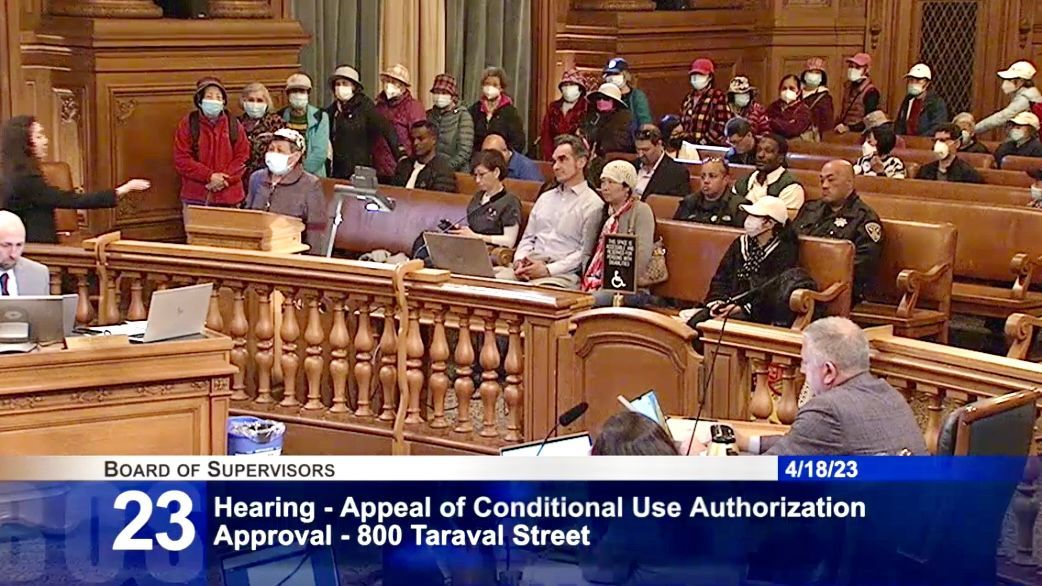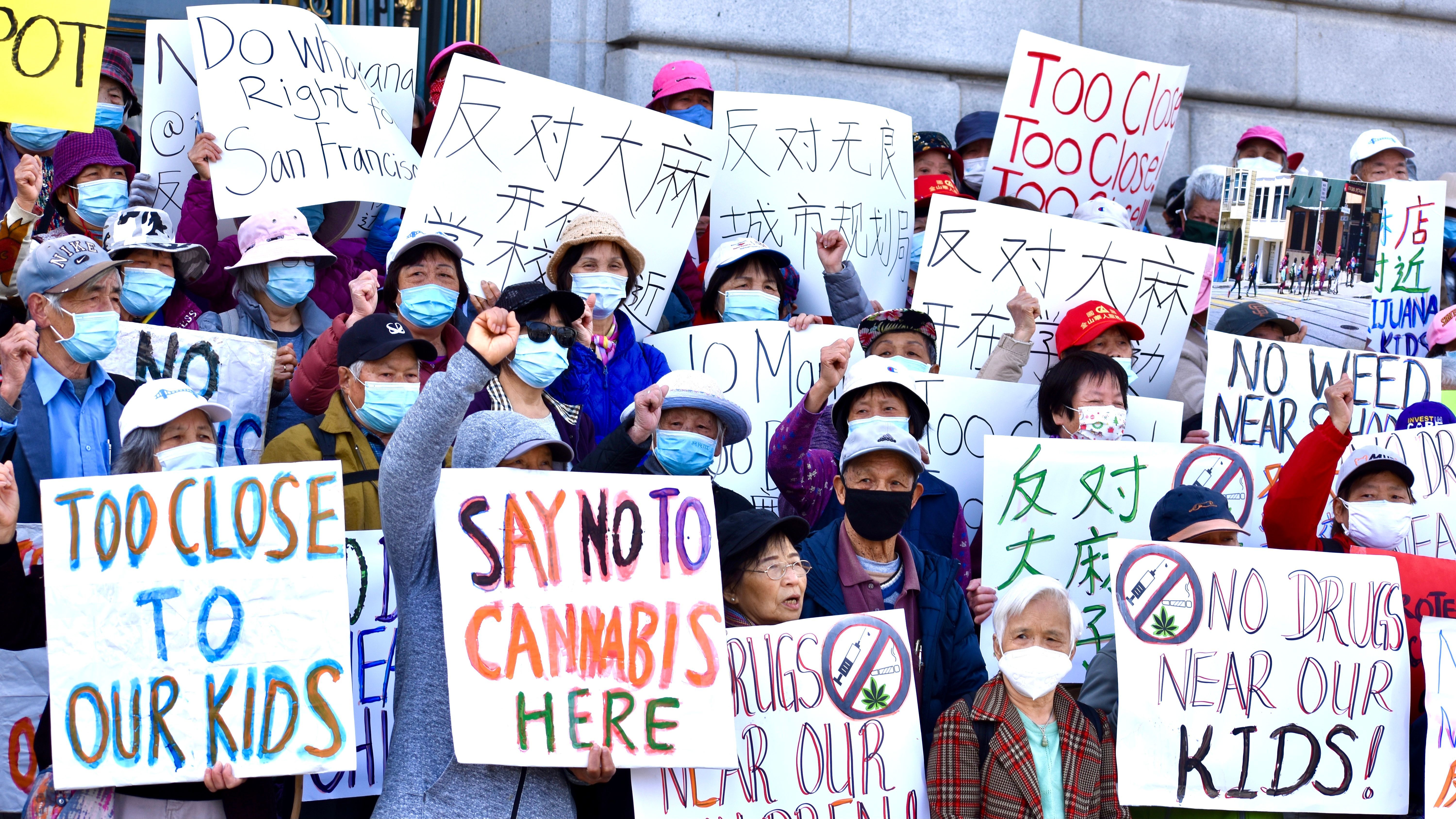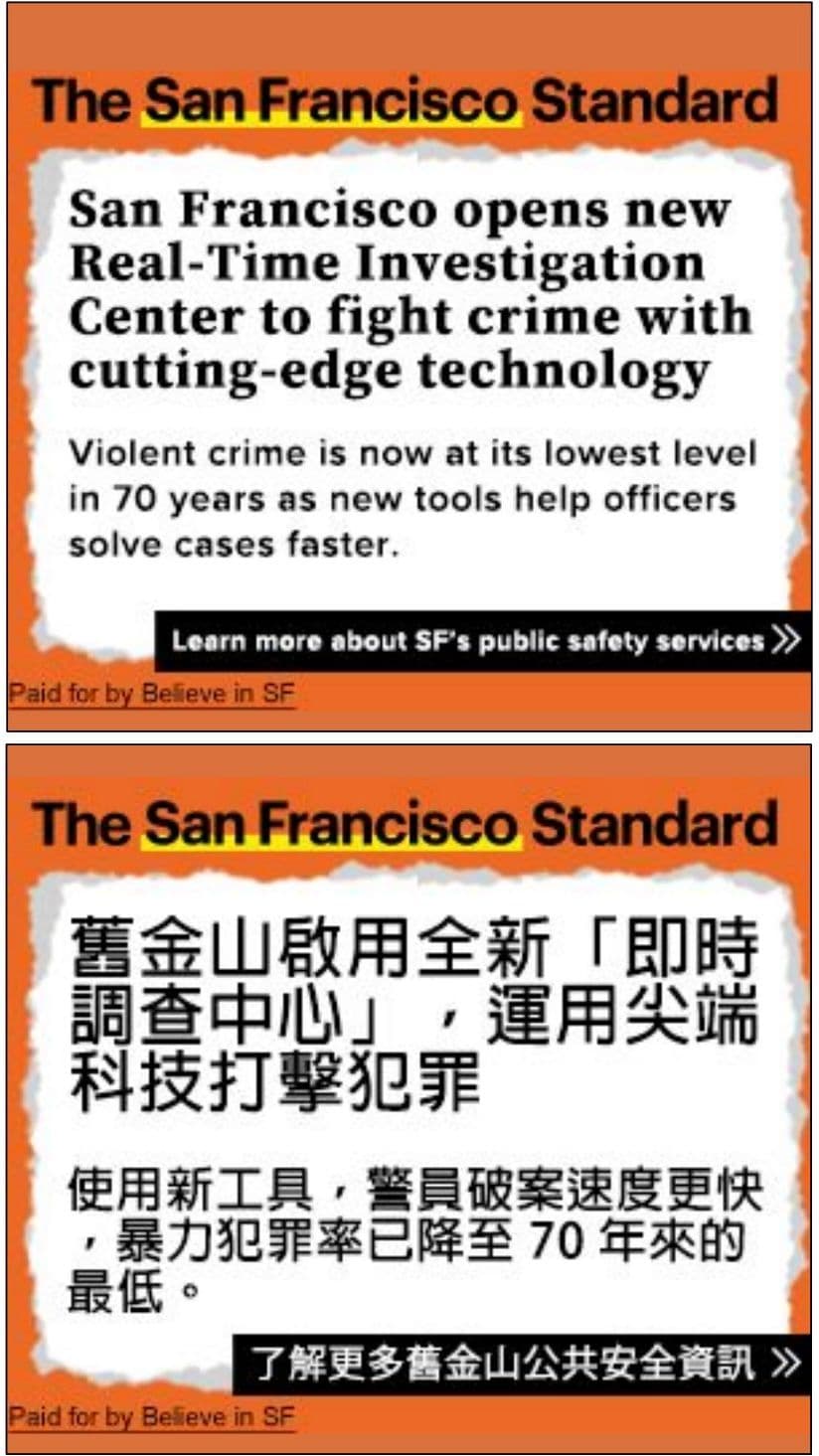Editorial: San Francisco City has failed to do the job to listen to the Chinese community

Editorial:
Once again, members of the Chinese community were disappointed, but not surprised, to see the vast majority of the Supervisors in San Francisco ignored the concerns of the community.
The Board of Supervisors voted 9-2 on April 18 to allow a new cannabis dispensary to open at 800 Taraval Street, which is located at the border of the Sunset District, the largest Chinese neighborhood in the city. Supervisors Stefani and Joel Engardio were the only two votes in dissent.
The license application from Green Mirror cannabis dispensary inside the Gold Mirror Restaurant at 800 Taraval Street was first unanimously approved by the Planning Commission. The neighbors and business owners in the neighborhood then filed an appeal to the Board of Supervisors which scheduled to hear the case on April 18.
The argument of the appellant in this case was about the pre-schools and the day care centers which should be included in the 600-foot rule of San Francisco City's cannabis law.
Mindy Louie, owner of the Happy Day Preschool located across the street from the proposed cannabis store at 800 Taraval Street, was disappointed to hear the decision made by the Board of Supervisors after a 2-hour public hearing.
"We did what we could to protect our children," said Louie with frustration.
Louie is a member of the coalition to file the appeal to the Board of Supervisors after the Planning Commission approved the license application on February 2.
Louie said the coalition has no decision yet on what to do next in response to the 9-2 votes by the Board of Supervisors.
A map provided by the coalition indicates that a total of 7 facilities, including 3 pre-schools, 2 dental offices and 2 martial arts schools primarily serving children, are within 600 feet from the proposed Green Mirror dispensary at 800 Taraval Street.
According to the statements issued by the city officials in the public hearings, the pre-schools were not part of the buffer law to restrict any dispensary open within 600 feet of any schools.
In fact, California cannabis law has been updated in 2019 to include day care centers and youth centers. Metro cities in California, including Los Angeles, Sacramento and Oakland which allow cannabis retail sales, have been quick to follow the state to change their laws.
"The cannabis dispensary site must not be within 600 feet of any park, child care center, in-home child care (family day care home), youth-oriented facility, church or faith congregation, substance abuse center, or cinema." stated by CREC, a cannabis real estate consulting firm, about the regulations on cannabis licenses in Los Angeles, Sacramento and Oakland starting 2019. Those cities have even further restricted the cannabis dispensary site from being within 300 feet of a residential zone.
In fall 2015, former Governor Jerry Brown signed a number of bills into laws which mandated the first set of comprehensive regulations on medical marijuana in California.
In November 2016, 57% California voters passed Proposition 64, legalizing recreational marijuana and leading to recreational cannabis sales starting January 2018.
The state updated the cannabis law in January 2019 to include day care centers as well as youth centers in the 600-foot rules of restrictions.
Apparently San Francisco lawmakers have been slow and behind their counterparts in California to follow the state laws to protect our younger children who are 3 to 5 years old. The lawmakers have also repeatedly failed to listen to the community, instead voted in favor of the cannabis businesses.
"There are loopholes in our law not to include pre-schools and learning centers. The Board of Supervisors should do their job to fix the loopholes," Selena Chu, one of the organizers of the protest, spoke in front of City Hall before the Board of Supervisors' meeting on April 18.
In the public hearing on the item at the Board of Supervisors Chamber, over 100 speakers, mostly elderly grandmas and grandpas, asked the Supervisors to deny the cannabis license application at 800 Taraval Street. The majority of them urged the Supervisors to make a decision to protect our next generations to let them grow in a more healthy environment free of cannabis retailers.
"There are a lot of misconceptions about cannabis. I select the restaurant with connections to the community. There is a lack of understanding having heard the concerns from the community," Angel Davis, co-owner of the proposed cannabis dispensary, said to the Board of Supervisors in the public hearing.
Actually, there was lots of misinformation and bias from the city officials and the mainstream media reports against the Chinese community on the cannabis issue.
Rachael Tanner, President of the City's Planning Commission, made public comment in the February 2 hearing that the opposition from the Chinese community was related to racial equity and used to target African- and Mexican- Americans.
"There is misinformation on cannabis and used to target certain communities," Tanner commented and also mentioned that the war on drugs in the country targeted Black and Mexican-Americans.

Everyone in the Chinese community is well aware of the opposition which has nothing to do with any ethnicity.
The records show that the very first protest by the Chinese community against a cannabis retail license application was in 2017. The proposed Outer Sunset medical marijuana shop license application was submitted by former Oakland Mayor Jean Quan and her husband Dr. Floyd Huen.
Also in 2017, the Chinese community protested against an Irving Street cannabis dispensary which was invested by Chinese American political consultant David Ho.
In 2022, Ho was one of the owners to submit a license application for a proposed cannabis retail shop next to a learning center on San Bruno Avenue in Portola, which is also a predominantly Chinese immigrant neighborhood. This application is still pending.
Why would hundreds of grandmas and grandpas who speak almost no English spend several hours sitting in the City Hall Chamber to speak in front of the public? The answer was very simple. "We did what we could do to protect our children". Just like Happy Day School owner Mindy Louie said.
The Chinese community's grandmas, grandpas, and mothers, who have more spare time, have organized many protests and attended many public hearings related to cannabis license applications since 2017. They did not say that they opposed all cannabis stores in San Francisco. They did not go to protest against any cannabis dispensaries located in downtown, Mission or Castro neighborhoods. They only didn't want the pot shops to come to their own neighborhoods which have over 50% of the population from their own community.
All Supervisors have the same responsibility to respect and honor the demands of the constituents based on their culture and needs. It is what the principle of Proposition 64 is. Cities and counties can prohibit cannabis businesses including retail, although cannabis use has been legal in California since 2017.
The data from California Department of Cannabis Control indicates that 61% of cities and counties (327 out of 539) do not allow any retail cannabis businesses, while 56% of cities and counties (302 out of 539) do not allow any type of cannabis business.
Governor Gavin Newsom, the author of Proposition 64, publicly told the Chinese language press in 2018 that he supported Supervisor Aaron Peskin's legislation to ban any cannabis businesses in San Francisco Chinatown, a 14-block jurisdiction.
Newsom reaffirmed to the Chinese press that his legislation aimed to give more discretion to local jurisdictions to decide if they want to have the marijuana sales to the public.
Supervisor Ahsha Safai, former Supervisors Jane Kim, Katy Tang, and Sandra Lee Fewer were the co-sponsors of Peskin's legislation. Supervisors voted 8-3, with Supervisors Hillary Ronen and Rafael Mandelman, former Supervisor Vallie Brown in dissent, to amend the city's planning code to prohibit the dispensaries, whether recreational or medicinal, from setting up shop in Chinatown.
"Public hearings typically provide the public an opportunity to offer their thoughts on a policy matter or a specific proposal that is before the agency for decision. The role of governing body members is to hear and consider those views when making a decision," defined by the Institute for Local Government founded in 1955.
Five years later today, although no one showed up in person or spoke through the phone in support of Green Mirror dispensary, 9 out of 11 Supervisors still voted in favor of Green Mirror.
"I am also very moved by all the speakers. No one called in in support of the dispensary," said District 2 Supervisor Catherine Stefani when she voted yes for the appellant.
District 4 Supervisor Joel Engardio also disapproved of the license. "We have a buffer law that says cannabis dispensaries must be located at least 600 feet away from a school. Yet this proposed cannabis location is across the street from a pre-school and a few doors down from two martial arts academies that serve kids," said Engardio.
"I’m aware the law defines school as kindergarten through 12th grade. But
why do we have a school law if it doesn’t include pre-schools? And it doesn’t include the other types of schools like test prep, dance studios, and martial arts schools. This doesn’t make sense. Under the full definition of school, this location on Taraval would not be permitted," Engardio added.
"The Planning Department relied on the letter of the buffer law but ignored the spirit when it approved this application. The buffer was clearly intended to put a distance between cannabis businesses and places where kids are gathered for long periods of time during the day," Engardio said, "Given this and the overwhelming opposition by residents, I do not feel this dispensary is in an appropriate location."
Min Chen, a longtime resident of Visitacion Valley for over 40 years, said the majority of the Supervisors have failed to do their jobs to listen to the community. "They have made decisions based on their political ideologies, not facts," said Chen.
"Two years ago in 2021, our neighborhood had more than enough legitimate reasons to ask the Supervisors to vote against the appeal from the cannabis owners who applied for a new license at 5 Leland Avenue,” Chen recalled.
The license application, which violated the city's cannabis law for having another existing dispensary around the corner within 600 feet, was turned down by the city’s Planning Department.'' Chen said. "Unbelievable, the Board of Supervisors voted 10-1 to overturn the City's recommendation and allowed the store to open. Our district Supervisor Shamann Walton and Chinese American Supervisor Connie Chan were among the 10 votes in support of the cannabis dispensary.”
"We were loud and clear to oppose the opening of that cannabis retail at 5 Leland Avenue. 10 Supervisors still voted (10-1) to ignore the voices of our community as well as the city law," Chen said. "I am not surprised to see the Supervisors voted 9-2 in support of the cannabis industry at 800 Taraval instead of their constituents."
Most of the Supervisor candidates would always come to ask for Chinese American votes and promise to listen to them during the campaign days. It is expected that more and more Chinese American voters would look at their track records rather than ethnicities in 2024, a year full of presidential and local elections for all levels of public offices.
- An increase in flu activity seen in SF Bay Area, experts recommend everyone aged 6 months and older to receive the flu vaccine
- SB 1234 is fully in effect in 2026 and requires employers to offer retirement plans to all employees, full-time, part-time & short-term
- Six power outages in Sunset District impact residents and businesses among strings of outages in San Francisco in Dec. 2025
- California bans all plastic carryout bags at retail stores starting January 1, 2026, only allows recycled paper bags to be distributed to customers
- If someone’s vehicle blocks your driveway, San Francisco's 311 service will resolve it easier and safer for you
- U.S. Department of Homeland Security proposes green card status can be denied for Medicaid and SNAP recipients
- NAPCA Column 18: About the One Big Beautiful Bill Act
- San Francisco Real-Time Investigation Center (RTIC) equipped with drones and advanced technologies now fully operates to help keep the city safe






